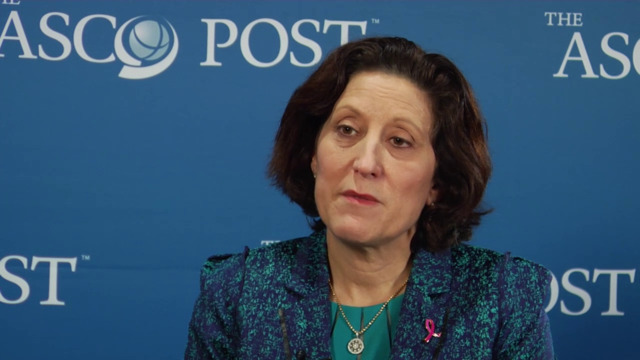Hope S. Rugo, MD, on Dietary Intervention as Adjuvant Breast Cancer Therapy
2014 San Antonio Breast Cancer SymposiumHope S. Rugo, MD, of the University of California, San Francisco, discusses abstract S5-08, “Final survival analysis from the randomized Women's Intervention Nutrition Study (WINS) evaluating dietary intervention as adjuvant breast cancer therapy,” presented by Rowan T. Chlebowski, MD.





